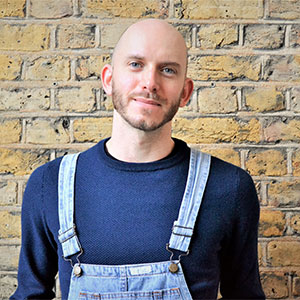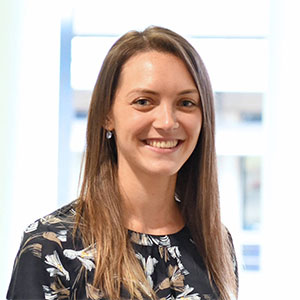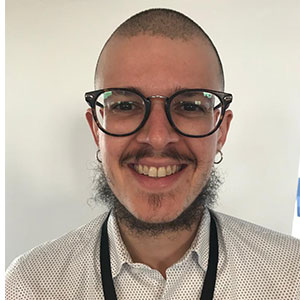Empowering researchers to be engaged in science policymaking
Improving the uptake of research into UK policy!
Science policy shapes the future of society by playing a vital role in fostering research and innovation and driving economic growth. However, many researchers have little experience in engaging with policymakers and influencing political decision-making. Considering this, the fifth Wellcome Connecting Science Science Policy: improving the Uptake of Research into UK Policy course aims to empower researchers to participate actively in policy decisions, and to promote evidence-based decision-making: bridging the gap between science and policy.
Returning in-person after two years of being virtual, this course covers the key elements of science policy, providing an introduction to various aspects of policymaking. Ahead of the course taking place in Cambridge on 21-23 August 2023, we asked our Scientific Programme Committee members to share with us their key insights and experiences related to building a career in science policy, as well as what we can expect from this year’s course to support your ambitions.
But firstly, some introductions…

Alessandro Coatti is the Senior Science Policy Officer at the Royal Society of Biology.With a background in molecular and cellular biology and neuroscience, Alessandro now works to improve science through the development of effective policy.

Hayley Clissold is Policy Lead for Research Environment at Wellcome Sanger Institute. With a background in biochemistry, Hayley’s passion for science policymaking was ignited through an internship opportunity with the Academy of Medical Sciences (AMS)

Ben Shave is a Committee Specialist at the House of Commons, working for the Science Innovation and Technology Committee
How did you get into Science Policy and why did you choose this career path?
Alessandro Coatti: I trained as a molecular and cellular biologist, and carried out postgraduate research in neuroscience before deciding to make a transition out of academia. I have always had the strongest passion for science and a belief that science should improve our understanding of, and relationship with, the living world. I did not know much about science policy before applying for my first job; however, I had experienced the world of learned societies and academies through an internship in science diplomacy at the Italian Embassy in London after finishing my master’s research project.
Hayley Clissold: I am a biochemist by background and during my PhD, I heard about a science policy internship opportunity at the Academy of Medical Sciences (AMS), which I thought sounded really interesting. I had never heard of science policy before, but I loved the idea of using your scientific knowledge to influence policy and impact the bigger picture. I applied for the internship and was fortunate to be offered a placement. I took three months away from my PhD research to do the internship and loved every minute of it! I was exposed to lots of different areas of science policy at AMS and I knew it was a career path I wanted to explore going forwards.
Ben Shave: I do not have a scientific background, but have been working in policy at the House of Commons since 2016. An opportunity came up to join the Science, Innovation and Technology Committee team, and I decided to go for it. When working in the world of select committees, it’s always great to cover an area that is a real priority for Government, as you have a real chance of influencing significant policy. Science, Innovation and Technology definitely fits that description.
I am very happy about the decision to move into policy because I want to see science flourish, its conduct improve and its benefits help us tackle the existential threats facing humanity and the natural world.
Alessandro Coatti, Senior Science Policy Officer, Royal Society of Biology, UK
What do you see as the main challenges for researchers seeking to influence science policy?
Ben Shave: Getting the right people to engage with it. There is so much great research being done, and policymakers only have so much capacity. In my experience, important work sometimes slips through the cracks, unfortunately.
Alessandro Coatti: I see three main challenges:
- A key issue is communicating the evidence in a way that is accessible and clear to lay audiences without trivialising the message, or obscuring the uncertainty and context associated with a specific study (or a body of literature).
- Identifying and providing links between scientific advice and other factors driving public policy: economic and political drivers, governance and regulations, for example.
- Establishing effective approaches for bringing together scientific knowledge and technological development, with ethical and sustainability frameworks. This area interests me greatly!
What do you wish you knew about policy before you moved into this career?
Alessandro Coatti: I wish I had ventured more into applied scientific questions and courses at university (I was mainly interested in theoretical and pure sciences). However, universities and research institutes are now devoting more attention and resources to developing skills in the scientific workforce, which can be useful to a career in policy.
Ben Shave: I knew this already, but I am still often surprised by the rate of development. To give a personal example, the Science, Innovation and Technology Committee launched an AI inquiry in October 2022. A few weeks later, ChatGPT was released into the wild. Say no more!
Do you have any highlights from the previous Connecting Science policy courses?
Alessandro Coatti: I enjoyed presenting talks at the previous two iterations of the course. The participants were very engaged and interested, which showed in the questions they asked. Some of them went on to work in science policy, which was exciting to see. I also found the exchange with other policy professionals on the course very fruitful.
Hayley Clissold: I am always really impressed by the group work exercise. The first time we tried an evidence/Select Committee approach and I was really inspired by the work each group put in and the fantastic points they put forward!
Ben Shave: This is my first time participating on the course, but I am really looking forward to finding out more about what the attendees are working on, and what they think the key issues for policymakers – or those scrutinising policy (like the Committee I work for) – are in the short, medium and long term.
The panel discussion with MPs is always one of my favourite elements of the Science Policy course!
Hayley Clissold, Policy Lead for Research Environment, Wellcome Sanger Institute, UK
What excites you about this year's upcoming course?
Hayley Clissold: We are back in-person!! While the virtual courses have been great, I think the in-person element will make the three days much more interactive, and will boost networking – bringing something extra special! We also have a fantastic line-up of speakers, and I am excited to meet everyone!
Alessandro Coatti: I very much look forward to this year’s residential course in Cambridge. I am sure that the face-to-face format will bolster the peer-to-peer learning and the networking opportunities this one-of-a-kind course provides.
If you want to help break down barriers and encourage mutual understanding between science and policy, apply for our course by 27 June 2023. Primarily aimed at early career researchers, this course is also beneficial to scientists interested in ensuring scientific perspectives are taken into account when policies that impact their field of research (or society as a whole) are developed.
Many stakeholders play a role in science policy decision-making, from scientists to campaigners. Through discussions with experts, group works, and networking, this course will enable you to network and make connections with a multidisciplinary community of policy contributors, and understand the approaches and processes critical to influencing effective policymaking.
Programme highlights:
- Sir Professor Ian Boyd’s keynote lecture on: The Role of Science in Government;
- Panel discussion with the Chairs of the Lords Select Committee and the Commons Select Committee, Baroness Brown of Cambridge, Julia King and Greg Clark, MP;
- Group project: developing a wearable health devices policy:
- Expert talks on the role of intermediaries in policymaking, international politics, commercial perspectives and influencing policy through campaigns.
Find out more about the programme, speakers, and application process here!
